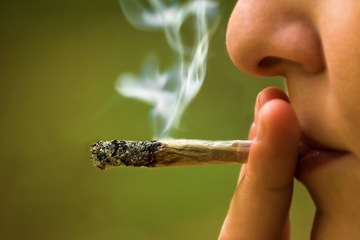No Daubert Expert Witness Needed to Identify Marijuana, Rules Florida Court
- By : Cbh
- Category : 4th Amendment, Marijuana

The Third District Court of Appeal ruled in L.L., a Juvenile v. The State of Florida that a police officer who possessed sufficient personal experience with marijuana could offer a lay opinion — not an expert opinion — identifying the substance as marijuana. The court held that meeting the five elements of Daubert were not required.
In 2013, Florida changed from the “Frye” standard to the “Daubert” standard. According to the Third DCA, this “typical marijuana possession case” was elevated to a 7 page appellate opinion in order to address the new standard and waive the smoke away from Rule 701 (lay opinion) and Rule 702 (expert opinion).
The facts: a police officer saw the defendant crouching down in a car, approached, and smelled marijuana when the window rolled down. The defendant handed over marijuana when he was asked by the officer if he had narcotics or guns (notably, the question was about “narcotics,” which would not include weed). The officer then identified the substance. At court, he was permitted to testify:
It has a distinct and very unique smell unlike any other. And over the years through my experience I recognize the smell very quick. I mean it’s something that it’s very unique, and it’s very distinct. And when you smell it it’s unlike any other smell, and it’s very identifiable.
This testimony was permitted under Rule 701 (as it would have been pre-Daubert) because it was based upon the witness’ “experiential basis” (personal knowledge) and everyday reasoning rather than some specialized knowledge or analysis.
As for a lay person’s ability to detect marijuana and testify about it — which apparently is not restricted to police officers — the court wrote:
Many people who have seen and smelled marijuana would be able to recognize it in the same way they recognize anything else they have seen or smelled before.
For those interested in a discussion about the (not so) new Daubert standard, procedure for voir dire of an expert, and issues relating to Rule 701 and 702, this case is a concise, if not amusing, summary.
Image credit: livescience.com


